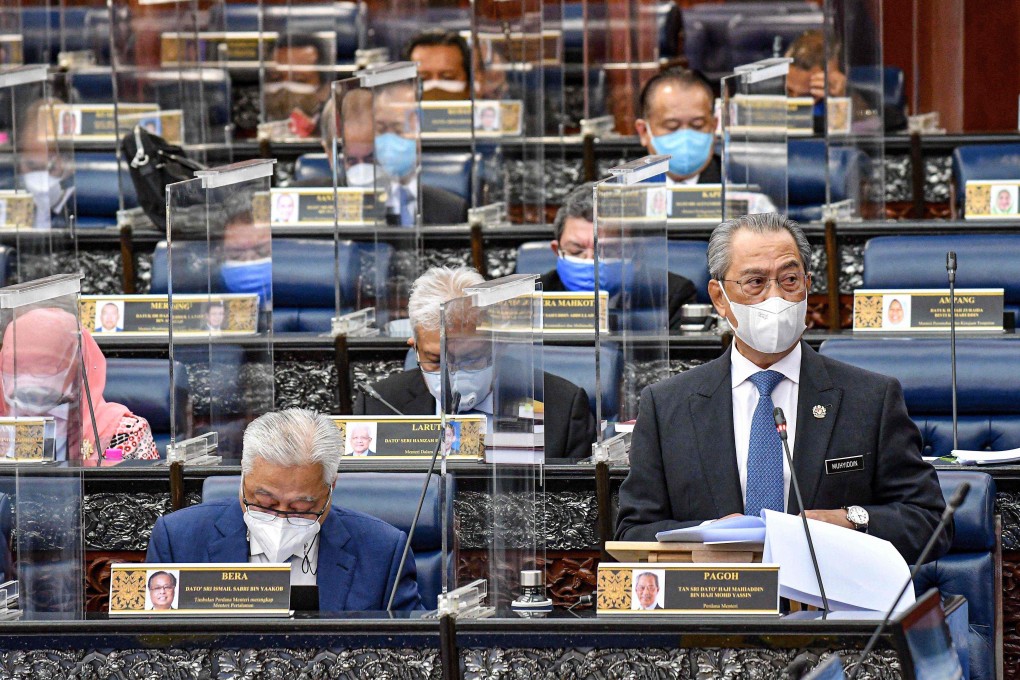Malaysia’s political crisis: PM Muhyiddin Yassin postpones parliament sitting amid showdown with king
- Lawmakers have been informed that a disrupted parliamentary sitting scheduled to resume on Monday will be postponed indefinitely due to ‘Covid-19 risks’
- The decision was taken by Muhyiddin, who is facing calls to resign after the king reprimanded the government last week

The notice stated that the decision to postpone the sitting was taken based on the health ministry’s advice that “parliament is a high-risk location for Covid-19 infection”.
It cited parliamentary standing orders that gave Muhyiddin prerogative powers to postpone the five-day session that is being held after the king, Sultan Abdullah Sultan Ahmad Shah, pressured the premier to allow lawmakers to debate pandemic-related policies and the six-month state of emergency that is due to expire on Sunday.
The sitting had initially been adjourned to Monday after Deputy Speaker Rashid Hasnon – from Muhyiddin’s own party – cited the need to take precautions as several people tested positive for the virus in the legislature building on Thursday. A total of 11 people were confirmed as Covid-19 cases.

02:01
Malaysia’s Covid-19 case toll tops 1 million as nation sees record day of infections
With the 11 cases constituting 0.9 per cent of the people who were present in house, the opposition accused Rashid of using the pandemic as a fig leaf to prevent any discussion in parliament of Thursday’s rebuke of the government by Sultan Abdullah.